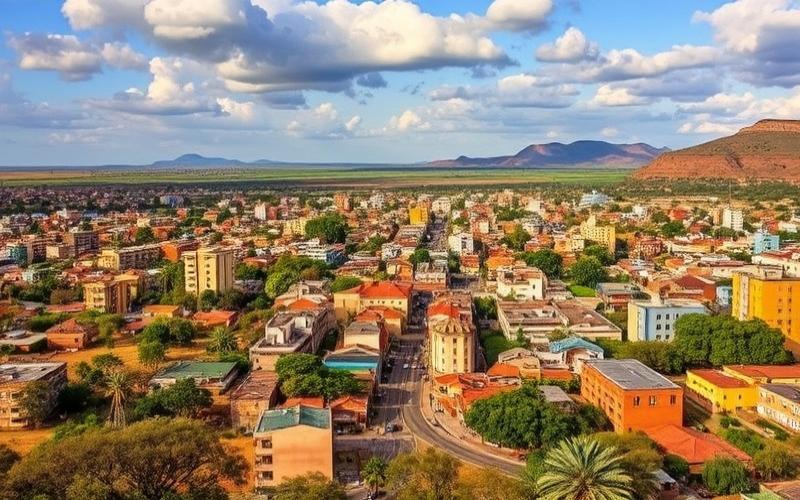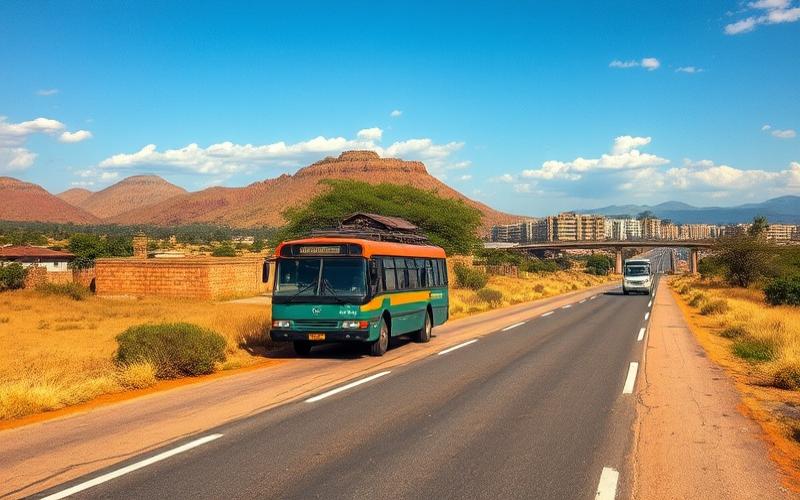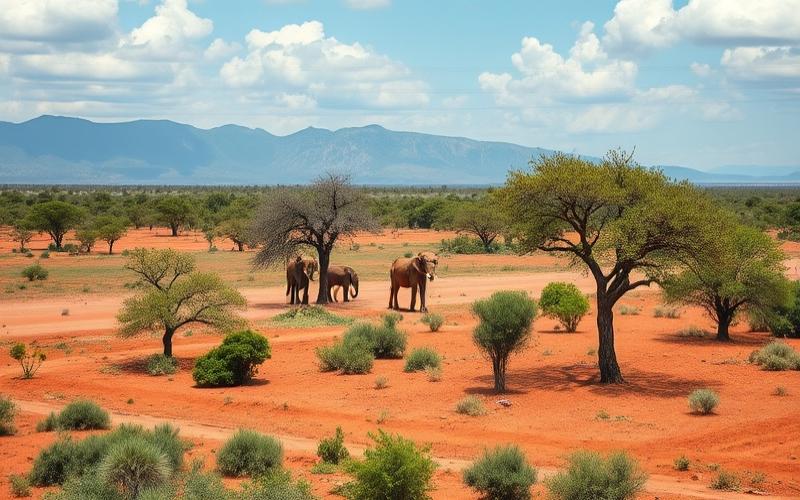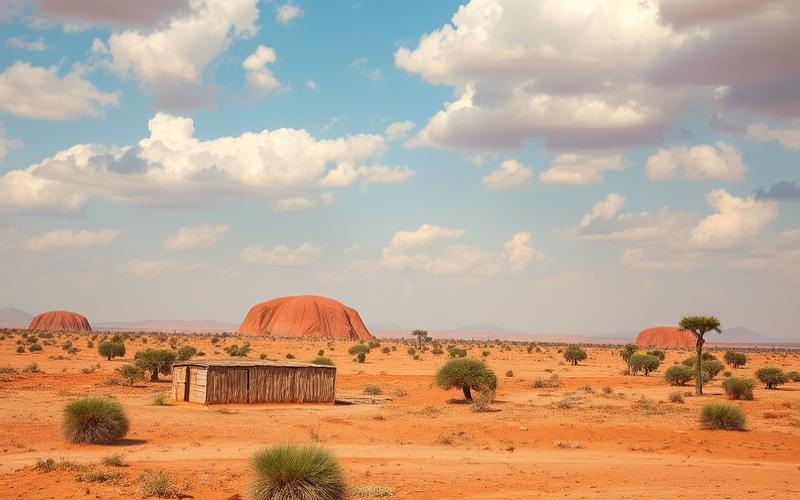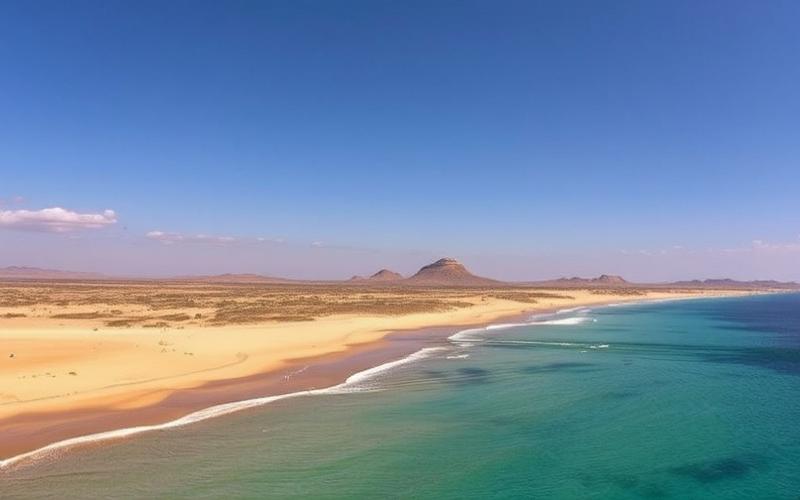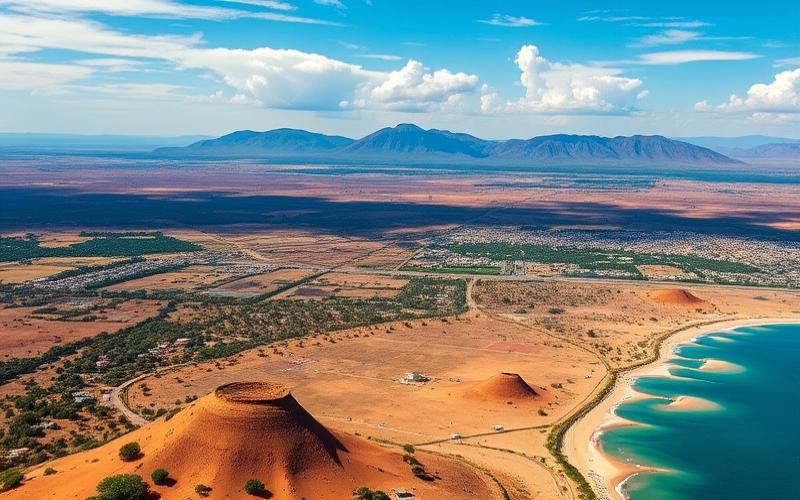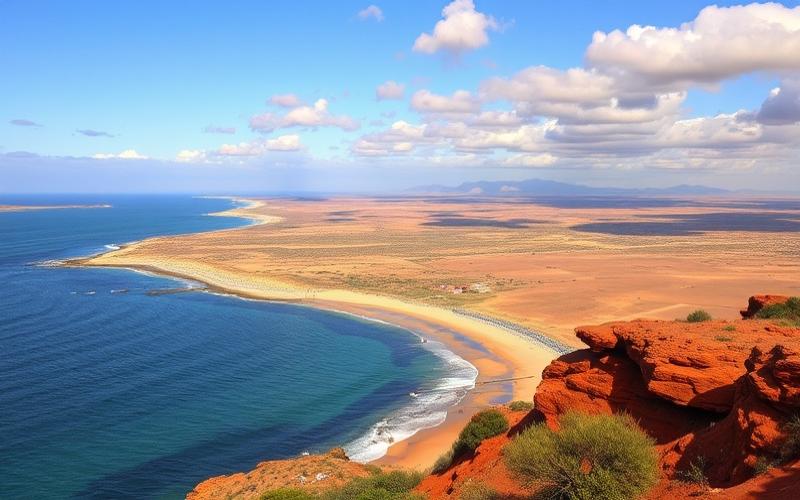
 Published on and written by Cyril Jarnias
Published on and written by Cyril Jarnias
Moving to South Africa is an adventure filled with discoveries, but before taking the leap, understanding the cost of living is essential for any expatriate. Between the appeal of its stunning landscapes and the cultural diversity that characterizes this country, crucial questions arise about the budget needed to live comfortably.
From housing to food costs and transportation, this guide will provide a detailed overview of the expenses to expect. So, what’s the real story behind these daily expenses and how do they vary by region? Does South Africa offer good value for money compared to other popular expatriate destinations?
Understanding the Cost of Living in South Africa
Key Economic Indicators Influencing South Africa’s Cost of Living:
- Rand (ZAR) exchange rate: 1 € ≈ 20.63 ZAR (2025).
- Inflation: Inflation remains volatile and significantly impacts prices of essential goods and services, particularly food and fuel.
- Average salary: The average monthly salary is approximately €1,106 (about 22,800 ZAR).
Comparison of Essential Goods and Services Costs (2025):
| Expense Category | South Africa (average) | France | United Kingdom | United Arab Emirates |
|---|---|---|---|---|
| Housing (city center, 1 bedroom) | €764/month | €1,200/month | €1,600/month | €1,300/month |
| Food (restaurant meal) | €7.50 | €15 | €18 | €12 |
| Gasoline (1L) | €1.10 | €1.80 | €1.70 | €0.70 |
| Transportation pass | €40/month | €75/month | €90/month | €50/month |
| Healthcare (consultation) | €40 (private) | €25 (public) | €50 (private NHS) | €70 (private) |
Prices are indicative and may vary by region and standard of living.
Regional Differences in South Africa:
| City | Cost of Living (vs France) | Characteristics |
|---|---|---|
| Johannesburg | 39% cheaper | Economic hub, urban lifestyle |
| Cape Town | 40% cheaper | Tourist destination, more expensive in summer |
| Durban | 43% cheaper | More affordable, mild climate |
| Pretoria | 40% cheaper | Administrative city, quiet |
| Rural areas | Up to 50% cheaper | Limited access to services |
- Johannesburg and Cape Town are the country’s most expensive cities but remain affordable compared to major Western cities.
- Durban and rural areas offer significantly lower cost of living, especially for housing and food.
Cultural and Social Aspects Influencing Cost of Living Perception:
- Income inequality: South Africa exhibits significant wealth disparities, affecting access to goods and services for different population segments.
- Local vs imported consumption: Expatriates preferring imported products or European standards may perceive the cost of living as higher.
- Security: In some urban areas, the cost of living in secure neighborhoods is notably higher.
- Healthcare: Expatriates often use the private sector, which is more expensive but offers better quality than the public sector.
Useful Resources and Platforms for Expatriates:
- Numbeo: International cost of living comparisons and city indices.
- Expatistan: Cost of living calculator for expatriates.
- Combien-coute.net: Detailed prices by category and city in South Africa.
- Expat forums (Expat.com, Internations): Testimonials, practical advice, and real-time updates.
Key Takeaways:
The cost of living in South Africa is approximately 44% lower than in France, but there are significant regional and social disparities. Expatriates must adapt their budget and expectations based on their chosen city and lifestyle.
Good to Know:
The rand exchange rate, often volatile, directly influences prices of imported products, while average salaries vary widely between Johannesburg and rural areas where the cost of living can be more affordable; for recent information and comparisons, Expatistan and Numbeo are useful online references.
Daily Life Comparison: South Africa vs Other Destinations
Differences and Similarities in Expatriate Daily Life: South Africa vs Other Popular Destinations
| Expense Category | South Africa (Johannesburg/Cape Town) | France (Paris) | Spain (Madrid) | Thailand (Bangkok) |
|---|---|---|---|---|
| Food | Low, affordable local products | High | Medium | Very low |
| Housing | $440/month for central apartment | >$1,200/month | ~$800/month | ~$500/month |
| Transportation | Affordable, transport ticket |
The quality of public infrastructure (public transport, public education) remains below European standards; private health insurance is highly recommended.
Finally, choices often lean toward secure residential neighborhoods or areas close to natural spaces. Families also prefer private international schools to ensure stable educational standards.
Quick Visual Summary
Average monthly cost for expatriate in city center:
South Africa: ~€916
France: ~€1,710
Spain: ~€1,200
Thailand: ~€800
Main Advantages of South Africa:
✔️ Mild climate year-round
✔️ Immediate access to nature
✔️ Vibrant social life
Main Limitations:
❌ Security varies by neighborhood
❌ Public system sometimes deficient
Good to Know:
In South Africa, the cost of living is generally lower than in major European cities, with more affordable housing and transportation, but the range of leisure and educational services remains diverse and comparable. Quality of life is enhanced by a unique natural environment and vibrant local culture, an appeal that many expatriates prioritize despite economic differences with other countries.
Planning Your Expatriate Budget in South Africa
| Expense Category | Johannesburg | Cape Town | Durban | Comments |
|---|---|---|---|---|
| Housing (city center, 1 bedroom) | €764/month | €800/month | €700/month | Cape Town often more expensive, Durban more affordable. |
| Transportation (gasoline, bus, taxi) | €1.10/L gasoline | €1.10/L gasoline | €1.10/L gasoline | Developed bus network, affordable taxis. |
| Food (monthly) | €150-200 | €170-220 | €140-180 | Cheaper at local markets. |
| Restaurant (simple meal) | €7.50 | €8 | €6.50 | Average price for lunch. |
| Entertainment (cinema, outings) | €5.60 (cinema) | €6 (cinema) | €5 (cinema) | Varied entertainment, cheaper than Europe. |
| Essential services (electricity, water, internet) | €80-120/month | €90-130/month | €70-110/month | Internet (ADSL/fiber) between €30-50/month. |
Differences Between Major Cities:
- Cape Town is generally the most expensive city, particularly for housing and food, due to its tourist appeal and rental demand.
- Johannesburg offers a slightly lower cost of living, especially outside the city center.
- Durban is known as the most affordable major city, particularly for real estate.
Money-Saving Tips:
- Prioritize local markets for fruits, vegetables, and fresh products.
- Opt for public transportation (MyCiTi buses in Cape Town, Rea Vaya in Johannesburg) or carpooling.
- Rent housing outside the city center or choose shared accommodation to reduce costs.
- Consume local products and avoid imported goods, which are often more expensive.
- Negotiate internet or electricity subscription contracts for competitive rates.
Essential Services:
– Electricity and water: approximately €50-80 per month for an average apartment, but these costs can rise depending on consumption and city.
– Internet: monthly subscription between €30-50 for high-speed connection.
Impact of Rand (ZAR) Fluctuations:
– The rand is a volatile currency, sensitive to economic and political events.
– A depreciation of the rand can make local expenses more affordable for expatriates paid in euros but increases the cost of imported products and services priced in foreign currencies.
– It’s recommended to regularly monitor exchange rate trends and avoid converting large sums at once.
Managing Medical Expenses and Health Insurance:
– Private healthcare is good quality but expensive; public hospitals are less costly but may be overcrowded.
– International health insurance is highly recommended to cover hospitalization, consultation costs, and potential repatriation.
– Verify that insurance includes coverage for routine care, dental, and vision if needed.
– Some local insurance (“medical aid”) may be more economical, but coverage is sometimes limited.
Estimated monthly budget (including housing) for a single person: between €900-1,000 in a major city, with potential to reduce this amount by adapting lifestyle and utilizing local money-saving tips.
Good to Know:
Allocate approximately 30% of your budget for housing, which varies between Johannesburg, Cape Town, and Durban, while considering costs of essential services like electricity and internet. To save money, prioritize local markets for food and use public transportation, while keeping an eye on the rand exchange rate that can influence your expenses.
Disclaimer: The information provided on this website is for informational purposes only and does not constitute financial, legal, or professional advice. We encourage you to consult qualified experts before making any investment, real estate, or expatriation decisions. Although we strive to maintain up-to-date and accurate information, we do not guarantee the completeness, accuracy, or timeliness of the proposed content. As investment and expatriation involve risks, we disclaim any liability for potential losses or damages arising from the use of this site. Your use of this site confirms your acceptance of these terms and your understanding of the associated risks.




